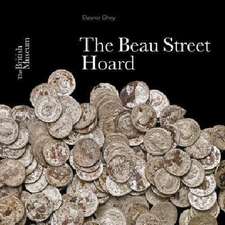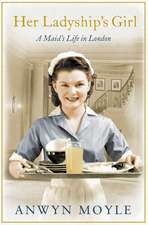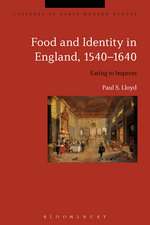Shakespeare, Catholicism, and Romance: Shakespeare: Bloomsbury Academic Collections
Autor Velma Bourgeois Richmonden Limba Engleză Hardback – 16 dec 2015
Preț: 832.65 lei
Preț vechi: 1197.92 lei
-30% Nou
Puncte Express: 1249
Preț estimativ în valută:
159.34€ • 165.42$ • 132.87£
159.34€ • 165.42$ • 132.87£
Carte disponibilă
Livrare economică 01-15 martie
Preluare comenzi: 021 569.72.76
Specificații
ISBN-13: 9781474247481
ISBN-10: 1474247482
Pagini: 256
Dimensiuni: 156 x 234 x 16 mm
Greutate: 0.54 kg
Editura: Bloomsbury Publishing
Colecția Bloomsbury Academic
Seria Shakespeare: Bloomsbury Academic Collections
Locul publicării:London, United Kingdom
ISBN-10: 1474247482
Pagini: 256
Dimensiuni: 156 x 234 x 16 mm
Greutate: 0.54 kg
Editura: Bloomsbury Publishing
Colecția Bloomsbury Academic
Seria Shakespeare: Bloomsbury Academic Collections
Locul publicării:London, United Kingdom
Caracteristici
Draws on the wealth of the backlists of Continuum, Sheffield Academic Press and The Athlone Press
Notă biografică
Velma Bourgeois Richmond is a past Fulbright Scholar and recipient of an American Council of Learned Societies Fellowship. She is Emeritus Professor of English at the Holy Names College, Oakland, California and is the author of studies of Muriel Spark and Geoffrey Chaucer, Laments for the Dead in Medieval Narrative, The Popularity of Middle English Romance, and The Legend of Guy of Warwick.
Cuprins
Illustrations Preface Introduction Part I The Christian Vision and Living in Shakespeare's World 1 Medieval Christendom Seven Sacraments The Romance Tradition 2 Reformation Changes and Lingering Images Restoration and Reform under Queen Mary Tudor Elizabeth and Enforced Protestantism Puritans Mysteries' End The Romance Tradition 3 The Shakespeares of Stratford Part 2 The Tradition of Romance 4 The Romance Mode: Medieval Origins and Some Reworkings The Comedy of Errors (c. 1589-94) Two Gentlemen in Verona (c. 1590-94) A Midsummer Night's Dream (c. 1595) The Merchant of Venice (c. 1596-97) 5 Understanding the Romance Mode As You Like It (1598-1600) Twelfth Night (1600-1602) Anti-Romance: Chaucer Revisited 6 Lost Men and Women: Suffering and Transcendence All's Well that Ends Well (c. 1601-5) Pericles (1606-8) Cymbeline (c. 1608-10) The Tempest (c. 1611) 7 The Romance Mode Attained: Accused Wives and Queens Hero in Much Ado About Nothing (c. 1598-99) Desdemona in Othello (1604-5) Hermione in The Winter's Tale (c. 1609-11) Katherine in Henry VIII (1613) Conclusion Notes A Bibliographical Note Index



















